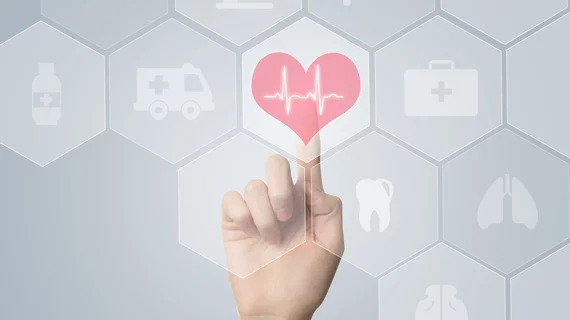RSNA 2020: New automated tool uses CT-based fat data to predict heart attack, stroke
A new automated tool can read abdominal CT scans and provide enhanced body composition measurements to better predict heart attack and stroke compared to body mass index or overall weight.
A radiologist from the University of California San Francisco, presented the research Wednesday during a session at RSNA’s annual meeting.
“Established cardiovascular risk models rely on factors like weight and BMI that are crude surrogates of body composition,” Kirti Magudia, MD, PhD, an abdominal imaging and ultrasound fellow at UCSF, explained in a statement. “It’s well established that people with the same BMI can have markedly different proportions of muscle and fat. These differences are important for a variety of health outcomes.”
Magudia first developed the artificial intelligence approach during her radiology residency at Brigham and Women’s Hospital in Boston, along with help from a slew of other physicians and researchers.
To do so, they used more than 33,000 outpatient abdominal CT scans performed on 23,136 patients at Boston-based Partners Healthcare in 2012. For each exam, the team used the third lumbar spine vertebra CT slice to calculate body composition areas. They tallied 12,128 patients who were not diagnosed with a major cardiovascular event during their scan.
For this retrospective investigation, Magudia et al. found that of those 12,000-plus patients, 1,560 suffered a heart attack and 938 experienced a stroke within five years of their initial abdominal CT.
Further analysis showed visceral fat area to be independently associated with a future heart attack and stroke, while BMI wasn’t associated with either.
“These results demonstrate that precise measures of body muscle and fat compartments achieved through CT outperform traditional biomarkers for predicting risk for cardiovascular outcomes,” Magudia noted.
As a result of their RSNA 2020 Trainee Research Prize-winning findings, Magudia believes this automated tool for body composition analysis can be applied to large-scale research projects.
“This work shows the promise of AI systems to add value to clinical care by extracting new information from existing imaging data,” Magudia explained. “The deployment of AI systems would allow radiologists, cardiologists and primary care doctors to provide better care to patients at minimal incremental cost to the healthcare system.”

